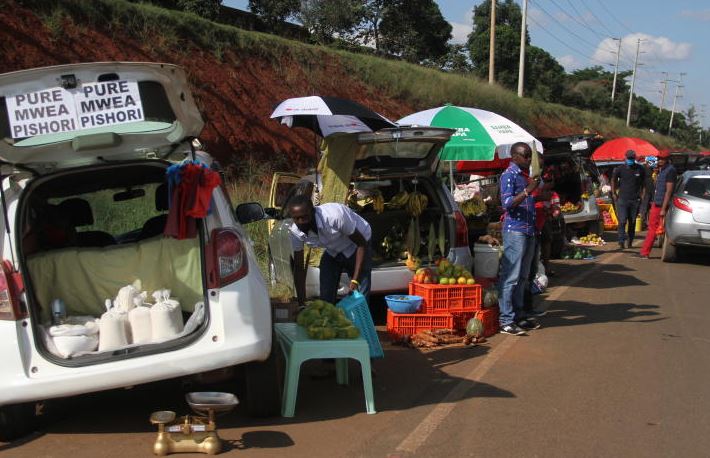×
The Standard e-Paper
Join Thousands Daily

The section of the Northern Bypass near Windsor Hotel could easily pass as a temporary parking space going by the number of vehicles that have pulled up by the roadside.
However, the reality becomes apparent when the occupants open their car boots to reveal ripening fruits, green leafy vegetables and sacks of cereals, all for sale to those driving past.